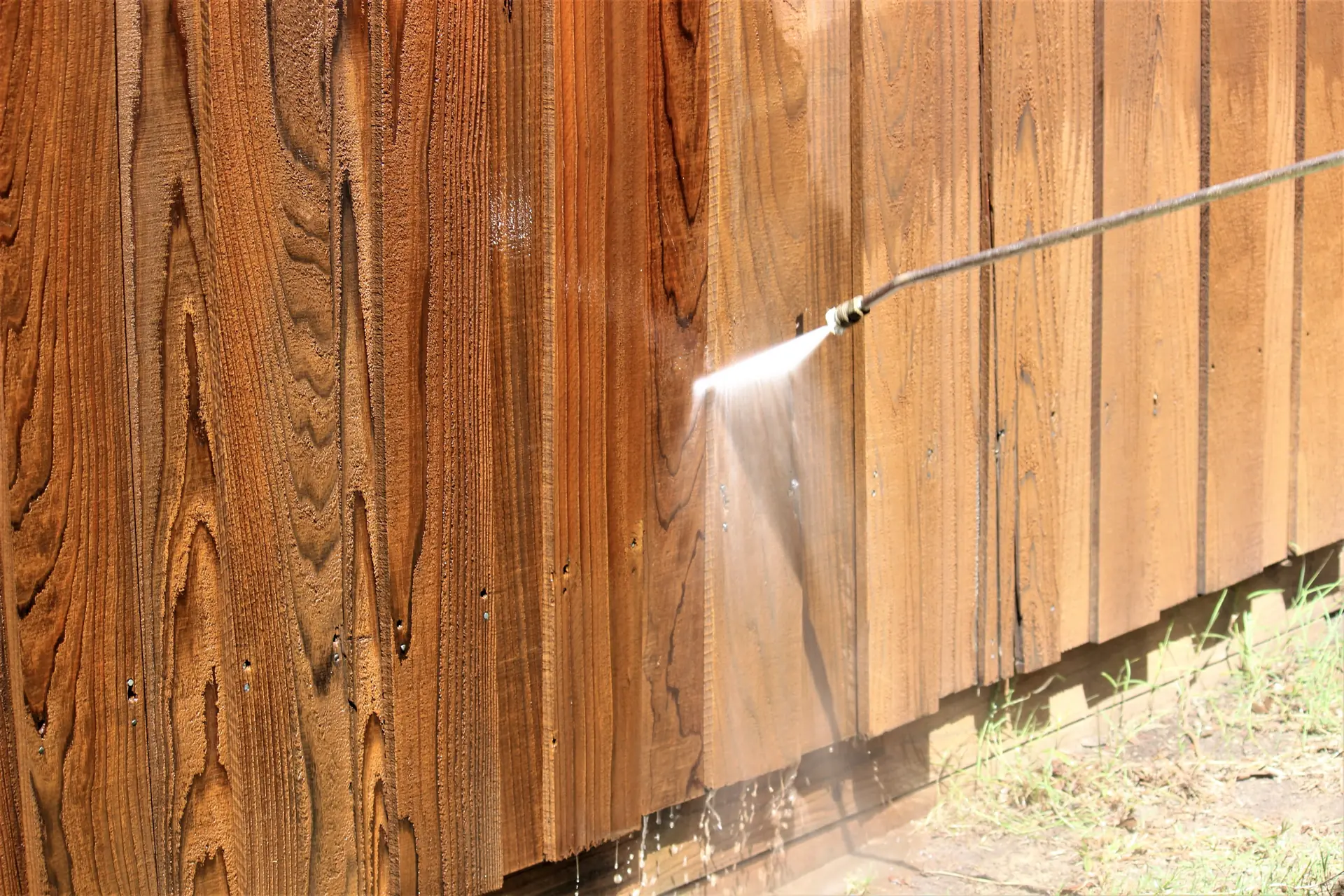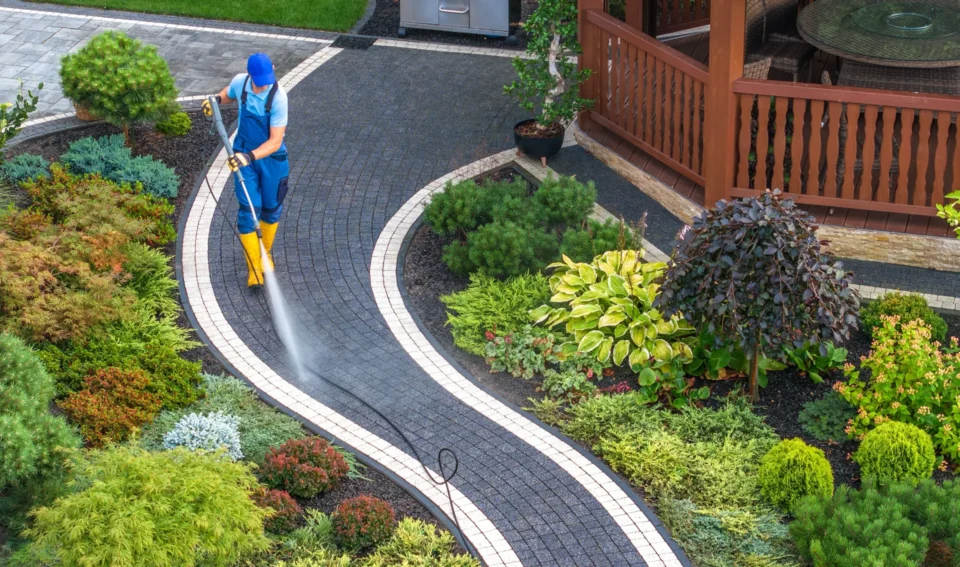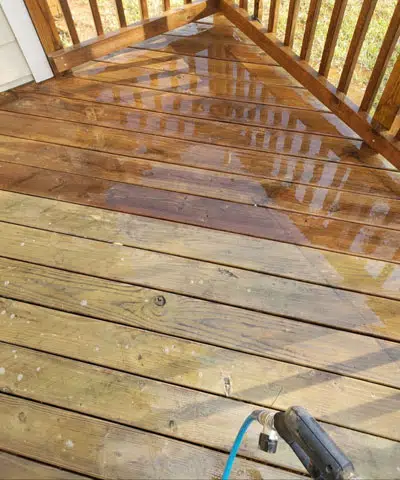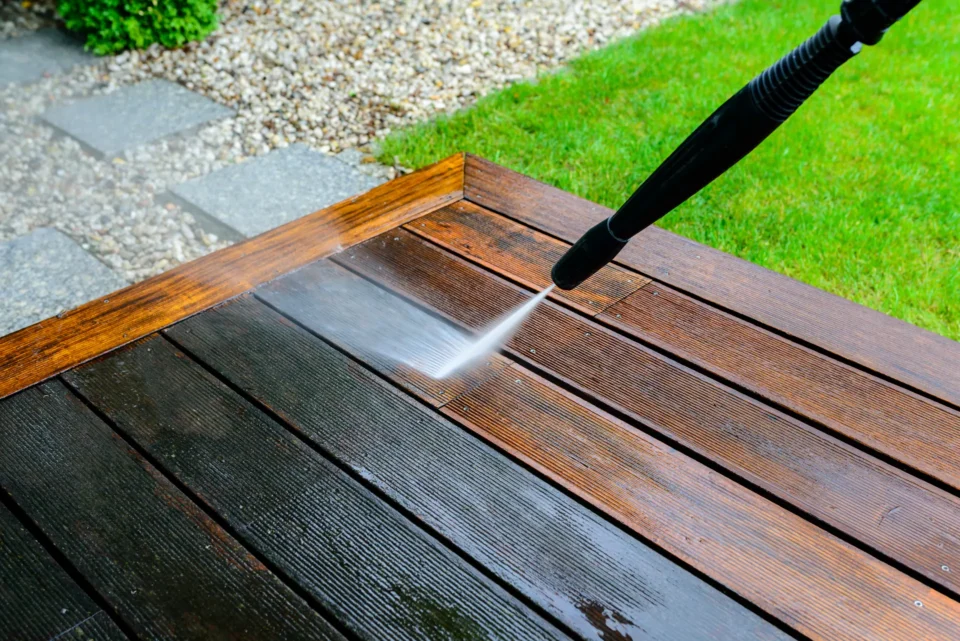A fence is more than just a boundary around your property—it’s a crucial element of your home’s appearance, privacy, and security. Whether it frames your backyard, lines your driveway, or keeps pets safely contained, your fence faces daily exposure to the elements. Yet, compared to routine home or landscape maintenance, fences are often neglected until grime, mold, or deterioration becomes hard to ignore.
Fence cleaning isn’t just about curb appeal. It’s about protecting your investment, extending your fence’s lifespan, and avoiding costly repairs. From wood and vinyl to metal, every fence material has its own cleaning needs and best practices.
The good news? With a clear plan and a few smart tips, keeping your fence in top shape doesn’t have to be a major project.
How Often Should a Fence Be Cleaned for Best Results?
Fences are outdoors 24/7, facing sun, rain, wind, dust, and more. Over time, this leads to a buildup of dirt, mold, algae, and even pollutants that weaken the structure and spoil its look. The right cleaning schedule depends on your fence material and local weather:
- Wooden Fences: Clean at least once a year—more if you live in a damp or wooded area. Cleaning every 6–9 months prevents mildew, mold, and discoloration. Consistent care helps wood resist rot and keeps it looking vibrant.
- Vinyl or PVC Fences: Vinyl fences repel grime better than wood, but still need cleaning every 18 months to two years. If your fence is near trees or gardens, consider more frequent cleaning to prevent algae and dirt buildup.
- Metal Fences: Metal fences, like iron or aluminum, should be cleaned once a year to prevent rust and keep paint or coatings in good shape. After big storms or pollen-heavy seasons, a quick wash removes buildup before it causes lasting damage.
- Climate and Conditions: Harsh weather—frequent rain, high winds, extreme temperatures—can accelerate grime and mildew. Coastal homes face salt exposure, which can corrode metal and stain wood, so more frequent cleaning is a must.
- Why Consistency Pays Off: Regular cleaning prevents deep stains, decay, and premature repairs. Spending an afternoon cleaning every season or two is far easier and cheaper than restoring a fence that’s been neglected for years.
What Type of Cleaning Solution is Safest for Wooden Fences?
Wooden fences are prone to dirt, mold, algae, and water stains. Cleaning with the right solution keeps the wood healthy, prevents rot, and avoids harsh chemicals that can strip natural oils or damage fibers.
Safe and Effective Cleaning Solutions
- Mild Soap and Water: Mix dish soap with warm water for routine dirt and light stains. Use a soft-bristled brush or sponge to avoid scratching the wood.
- Vinegar and Water: For mildew or light mold, mix one cup of white vinegar with two cups of water. Spray it on, let it sit a few minutes, then scrub and rinse thoroughly.
- Oxygen Bleach: Oxygen-based cleaners like OxiClean tackle tough stains and deep mildew without damaging wood fibers or color. Mix according to package instructions, apply, scrub, and rinse well.
- Wood-Specific Cleaners: For premium wood types (like cedar or redwood), use a specialized wood cleaner to protect grain and color.
What to Avoid: Skip chlorine bleach and ammonia—they can weaken wood and dry it out, making it prone to cracks and warping. Always test a new cleaner on a small, hidden spot first.
Pro Tip: Wear gloves and eye protection when handling cleaners. Rinse thoroughly after scrubbing to remove residue that could attract dirt or damage wood.
Does Pressure Washing Damage Fences Over Time?
Pressure washing can be a fast way to blast away dirt and stains, but it isn’t always the safest choice—especially for wood.
Pressure Washing Pros and Cons
- Wooden Fences: Too much pressure strips away protective layers, gouges the wood, or even forces water deep into the boards, leading to rot and splintering. Use the lowest pressure setting (500–600 PSI), a wide-angle nozzle, and hold the sprayer at least 12–18 inches away from the surface. Move the spray in the direction of the wood grain to prevent damage.
- Vinyl and PVC Fences: Pressure washing is safer, but high pressure can still crack or dull the finish. Use a moderate setting and a wide nozzle.
- Metal Fences: Generally safe, but avoid focusing too long on one spot. After washing, dry the fence and apply a rust-resistant coating to prevent oxidation.
Best Practices
- Start with a garden hose and scrub brush—only use a pressure washer if needed.
- If you pressure wash, follow with a protective sealant or stain to keep the fence in peak condition.
What Factors Influence the Longevity of a Fence Cleaning Treatment?
How long your fence stays clean and protected after washing depends on several factors:
1. Weather and Climate
- Rain/Humidity: Increases risk of mold and mildew, especially on wood.
- Sun: UV rays can dry and fade both wood and vinyl, making them look older and more brittle.
- Wind: Carries dust, leaves, and debris that stick to wet or damp fences.
2. Fence Material
- Wood: Needs frequent attention—cleaning, sealing, and occasional restaining.
- Vinyl/PVC: Lower maintenance, but still prone to algae and mildew in shady, damp spots.
- Metal: Most vulnerable to rust—clean, dry, and coat with a rust inhibitor.
3. Protective Treatments
- Sealing Wood: After each wash, reseal wood fences to repel water and slow rot.
- UV-Protective Coatings: Shields both wood and vinyl from sun damage.
- Rust-Proof Paint or Coating: Protects metal fences, especially after pressure washing.
4. Yard Conditions
Bushes, vines, and sprinklers that constantly wet or shade the fence lead to more frequent cleanings. Consider trimming plants back and adjusting sprinklers to keep the fence drier.
The Key to a Long-Lasting, Beautiful Fence
Fence cleaning doesn’t have to be a huge chore. Consistent attention—matched to your fence’s material and the demands of your local climate—pays off in long-term curb appeal and structural health.
Start with a regular schedule: once a year for most materials, more often in tough environments. Use mild, material-appropriate cleaners, and pressure wash only as needed and with care. Finish with protective treatments to keep weather, sun, and moisture at bay.
With a simple, well-timed strategy, you’ll extend the life of your fence, avoid expensive repairs, and enjoy a property that looks great in every season.
Give Your Fence the Care It Deserves with Power Clean Pressure Washing!
Is your fence starting to look weathered or stained? At Power Clean Pressure Washing, we bring fences back to life and keep them protected year-round. Let our pros handle the dirty work—so you get a fence that lasts, looks fantastic, and boosts your home’s value.
Contact us today to schedule your professional fence cleaning and see the difference for yourself!




